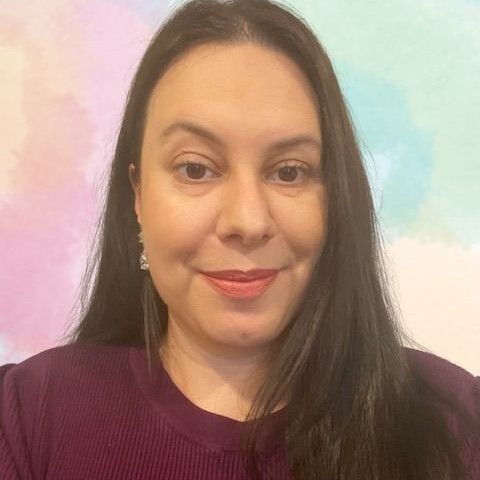Huntr Blog
How to Answer "What Are Your Strengths and Weaknesses" in an Interview
July 11, 2024
Interviews usually consist of a combination of new and innovative questions as well as a few cliché ones. An age-old question from the latter kind is: “What are your strengths and weaknesses?”
Despite being extremely overused, it still finds its way into modern interviews because of how much insight it can provide into a candidate. It’s a double-edged sword — one that offers you an opportunity to either showcase your strong points, but also poses a risk of over-exposing your potential downsides.
Nevertheless, it’s one of the trickier questions you can encounter in an interview no matter what type of industry you belong to. This article will serve as a specialized guide to help you knock the ball out of the park if and when this question presents itself.
Remember, confidence is key to conquer any interview, and that often only comes from solid preparation. So, let’s begin!
Getting ready for a big interview?
Sign up for Huntr to access mock interview questions tailored to the job description and your work experience.
Understanding the Purpose
To tackle the interview question “what are your strengths and weaknesses”, you first have to understand the hiring manager’s intent behind the question.
Interviewers ask your about your strengths and weaknesses to judge several aspects of your professional persona:
- Self-Awareness: Are you objective enough to realize and express your own strengths and weaknesses to the interviewer? It’s all about being able to mindfully notice what your weaknesses and strengths are. The reality is, most people get feedback at work all the time. When people speak to you regarding areas of growth and improvement, do you listen to their thought process and become aware of what you need to work on.
- Honesty: Are you transparent and truthful enough about your strong points and areas requiring improvement? Honesty can be tricky in an interview, you want to tell the truth about who you are without making yourself seem terrible or over-inflating yourself. It’s about a level of candidness in knowing what you need to work on and what you really shine at.
- Growth Mindset: Do you recognize your weaknesses? Are you willing to proactively take steps to work on them? People with growth mindsets tend to believe they’re changeable and can get better with more effort, practice, and time. People with fixed mindsets tend to believe that they were born good and bad at certain things and can’t improve their traits. Recruiters often look for people with growth mindsets to find candidates who will actively take feedback positively and work on flaws to become an even better employee at their company.
- Role Suitability: Are your strengths in line with what the employer is looking for? Are you weaknesses manageable for the organization — especially for the role you’d be filling. There needs to be an alignment between the role that’s being filled and your skillset. If the things you’re great at are exactly what the company needs, then great. And if your weaknesses are no big deal for this kind of role, you’ll keep passing through interview stages.

Preparing Your Answer
Preparation is key to answering this “What are your strengths and weaknesses” interview question effectively. Here are some steps to follow to ensure you come to this interview prepared:
Step 1: What Are Your Strengths?
Reflect on your previous roles. Obtain and/or recall feedback from your prior and current colleagues and supervisors. You can also actively ask for feedback from colleagues asking about your strengths. Taking the time to find out what your strengths are is key to knowing what value you’ll add to your next company. For example, if you’re a writer, are you prolific or maybe have a witty sense of humor in your writing. You’ll see hints at the type of person they’re trying to hire in the job posting, so thinking about your true strengths and looking for jobs that look for those kinds of things will help you stand out come interview.
Identify role-specific strengths in your character, work experience, and skillset. When it comes to strengths, you need to think in terms of the total package. People often hire people for both their hard and soft skills. It’s not just about what work you can do but also how you interact with others, what your personality is like. Having a combination of strengths that relate to you as a person but also you as a worker will help people get a well-rounded look into who you are.
Think about qualities and unique experiences that may make you a strong candidate for the job you’re applying for. Share the insights of your strengths using stories and experiences that help people see your growth as a person over time.
Step 2: What Are Your Weaknesses?
Identifying a weakness requires introspection. You should aim to be honest but strategic in choosing a real weakness. However, it shouldn’t be critical for the job as it may be a deal-breaker. The weakness you choose also needs to be fixable or helpful in certain situations. Either you explain that the weakness has worked favorably on several important occasions but can still be difficult during certain times. Or you can share a weakness that you’re actively working on.
Focus on weaknesses that you have already taken steps to mitigate or get rid of. If you’ve already taken the baby steps to improve the weakness, it puts you in the position to showcase that you actually take people’s feedback and consideration seriously. You might share a story about how a few weeks ago someone gave you feedback that you needed to improve your public speaking skills, and you signed up for a public speaking course recently and even signed up to speak at a conference later in the year so you can practice your communication skills.
Clichés like “I’m a perfectionist” which are an indirect compliment to yourself are a no-go, unless you can genuinely back it up with specific examples. You don’t want to give common answers that people hear all the time either. Having a weakness isn’t a terrible thing, you want to be able to take something that isn’t a big deal.
Step 3: Provide Examples
Use the STAR method (Situation, Task, Action, Result) to strategically structure and deliver your answer.
Provide particular examples to demonstrate all or most of the strengths and weaknesses you mention. Your ability to convey an engaging story about your strengths and weaknesses will help the conversation flow more seamlessly in the interview as well. Rehearsing your answer and knowing a story well enough to share what your strengths and weaknesses are will show that you prepared for the interview. Your body language in telling the story will matter too. If you share the story with a sense of shame or embarrassment, it’ll make the interviewer view you negatively. Yet, if you share the story with a sense of curiosity in your own growth and willingness to take yourself to the next level, you’ll come across more positively, especially if you’re demonstrating a growth mindset.
Illustrate to the interviewer how your strengths have benefited your prior employers, and how they can yield value in the role you’re being interviewed for. Sharing some of your biggest wins that helped grow another business will help get hiring managers excited about you as a candidate. You still want to share your strengths with a sense of humility though.
Step 4: Show Improvement
Whenever you discuss a weakness, try to also shed light upon the steps you’ve already taken to improve it. Highlight any training, courses, or experiences that have helped you improve. Show a commitment to personal and professional growth.
Many companies look for people who can take critical feedback and evolve into something better. People who shrink with feedback often end up performing worse at work. A hiring manager is going to look for people who can rise to the challenge of negative feedback to become the best version of themselves they can be.

Crafting Your Answer
Answering About Strengths
1. Choose Relevant Strengths
- Pick 2-3 strengths that align closely with the job description.
- Examples: “I have strong project management skills,” “I thrive in startup environments,” or “I excel at data analysis and interpreting complex information.”
2. Provide Evidence
Strengthen your claims with evidence to promote reliability. Here’s an example:
“One of my key strengths is my ability to manage multiple projects simultaneously. For instance, in my previous role, I led three major projects concurrently, all of which were delivered on time and within budget. The projects I worked on helped the company surpass their quarterly financial targets by 200%.”
Answering About Weaknesses
1. Choose a Manageable Weakness
Select a weakness that is not a core requirement for the job. You want to choose a weakness that is also fixable.
Examples: “I sometimes have difficulty delegating tasks,” “I can come across as too direct via written communication,” or “I can be overly detail-oriented.”
2. Show Improvement
Show the interviewer(s) that while you lack in a certain area, you’re also working on it and getting better. You want to show that you take people’s feedback about you to heart and are genuinely interested in improving yourself for the better. For instance, one might say:
“One area I’m working on is my tendency to be overly detail-oriented. I’ve realized that while attention to detail is important, it can sometimes lead to inefficiencies. To address this, I’ve started using project management tools to help me prioritize tasks and focus on the bigger picture.”
Dos and Don’ts
Dos:
- Be Honest: Authenticity is valued by interviewers, and being strategic with your responses does not mean having to be deceptive. It’s advisable to get your point across honestly no matter what the question may be. Your honesty should lean positively instead of negatively, though.
- Be Positive: Frame your weaknesses in a way that shows you’re proactive about improvement and genuinely enjoy the growth opportunity the weakness provides. End your sentences on a positive note by sharing how you plan on improving, and what, if anything, has already worked for you.
- Be Specific: Use direct examples to elaborate the points you make about your strengths, weaknesses, or character traits in general. Storytelling can be an effective way to share your examples to show the journey of improving your weaknesses and the road to your strengths.
- Technical preparedness: Many interviews these days are conducted virtually, so make sure you’re technically prepared for an online meeting. This includes having a fast and stable internet connection, and preferably using a free VPN for Mac to protect your data and privacy.
- Practice your answer: Considering this is one of the most common interview questions you’ll be asked, it’s crucial that you prepare an answer and a story in advance. Practicing variations of this question will help ensure your interview will go smoothly.
Don’ts:
- Be Overly Critical: Avoid harshly criticizing yourself. Instead, adopt a positive tone and pick words that soften the blow of any weaknesses you might share. The tone you should approach for the interview is that you’re a work in progress and you find it enjoyable to transform your weaknesses into strengths.
- Be Vague: Generalities don’t provide insight into your abilities. The interviewer will also be judging your communication skills indirectly with each question, so be precise and clear in your responses. You don’t want to beat around the bush with your answer.
- Choose Irrelevant Strengths: Focus on strengths that matter for the role to improve your chances of success. For instance, being a great cook does nothing for your employer if you’re being interviewed for an accounting position. Pick your best career strengths or character strengths that’ll make you a great fit for the job and fun to work with.
Practice Makes Perfect
Once you’ve brainstormed all of the areas discussed above in this article, it’s time to start practicing. Knowing what to say is one thing, but executing it properly is what will drive the performance home in your interview.
Rehearse your answers, but be careful not to sound too rehearsed. Practicing with a friend or mentor can help you refine your responses and gain confidence before the big day.

Conclusion
Answering “What are your strengths and weaknesses?” effectively requires a balance of honesty, self-awareness, and strategic thinking. By preparing thoughtful, specific examples and demonstrating a commitment to growth, you can turn this question into an opportunity to shine and leave a positive impression on your interviewer. Remember, it’s not just about what you say, but how you say it that will make the difference. If you’re currently interviewing for jobs, you can track your interview calendar using Huntr to manage all your job applications and more. Sign up for Huntr today!
Get More Interviews, Faster
Huntr streamlines your job search. Instantly craft tailored resumes and cover letters, fill out application forms with a single click, effortlessly keep your job hunt organized, and much more...
AI Resume Builder
Beautiful, perfectly job-tailored resumes designed to make you stand out, built 10x faster with the power of AI.
Next-Generation Job Tailored Resumes
Huntr provides the most advanced job <> resume matching system in the world. Helping you match not only keywords, but responsibilities and qualifications from a job, into your resume.
Job Keyword Extractor + Resume AI Integration
Huntr extracts keywords from job descriptions and helps you integrate them into your resume using the power of AI.
Application Autofill
Save hours of mindless form filling. Use our chrome extension to fill application forms with a single click.
Job Tracker
Move beyond basic, bare-bones job trackers. Elevate your search with Huntr's all-in-one, feature-rich management platform.
AI Cover Letters
Perfectly tailored cover letters, in seconds! Our cover letter generator blends your unique background with the job's specific requirements, resulting in unique, standout cover letters.
Resume Checker
Huntr checks your resume for spelling, length, impactful use of metrics, repetition and more, ensuring your resume gets noticed by employers.
Gorgeous Resume Templates
Stand out with one of 7 designer-grade templates. Whether you're a creative spirit or a corporate professional, our range of templates caters to every career aspiration.
Personal Job Search CRM
The ultimate companion for managing your professional job-search contacts and organizing your job search outreach.

